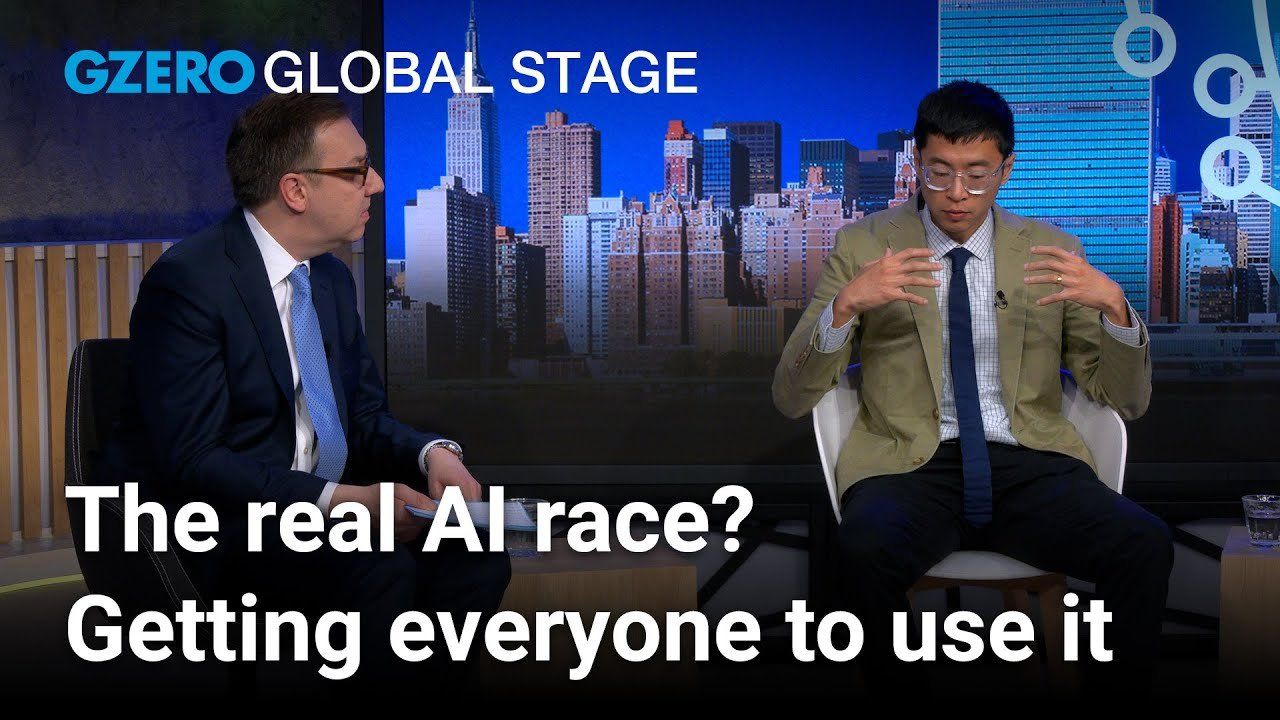UN STI Forum
Winning the AI race isn't about who invented it first

Winning the AI race isn't about who invented it first | Global stage

As artificial intelligence continues to reshape the global economy, the spotlight often lands on breakthrough inventions from labs like OpenAI, Anthropic, or DeepSeek. But according to Jeffrey Ding, assistant professor at George Washington University and author of "Technology and the Rise of Great Powers," that focus misses the bigger picture.
In this Global Stage conversation from the 2025 STI Forum at the United Nations, Ding argues that the true driver of national power isn’t who invents the next great AI tool—it’s who can scale it. He calls this process “diffusion”: the broad, effective spread of general-purpose technologies like AI across entire economies, industries, and institutions.
History backs him up. From electricity to the steam engine, Ding notes that the countries that ultimately benefitted most from past industrial revolutions were those that could integrate new technologies widely — not just invent them first. “That’s where diffusion meets inclusion,” he says.
This conversation is presented by GZERO in partnership with Microsoft, from the 2025 STI Forum at the United Nations in New York. The Global Stage series convenes global leaders for critical conversations on the geopolitical and technological trends shaping our world.
See more at https://www.gzeromedia.com/global-stage/un-sti-forum/ai-trends-in-2025-that-drive-progress-on-global-goals
100 million: The number of people expected to watch the Super Bowl halftime performance with Bad Bunny, the Puerto Rican superstar and newly minted Album of the Year winner at the Grammys.
Think you know what's going on around the world? Here's your chance to prove it.
An imminent US airstrike on iran is not only possible, it's probable.
Americans are moving less — and renting more. Cooling migration and rising vacancy rates, especially across the Sunbelt, have flattened rent growth and given renters new leverage. For many lower-income households, that relief is beginning to show up in discretionary spending. Explore what's changing in US housing by subscribing to Bank of America Institute.